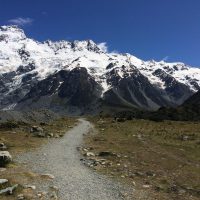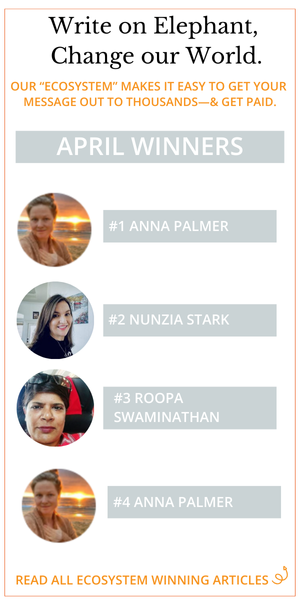View this post on Instagram
I wonder, at times, if personal trauma follows the arc of collective trauma.
Some of the feelings in the world at the moment seem to echo and reflect what I felt as my mother died. I remember lying awake in bed at 4 a.m. in the morning, listening to the haunting, melancholic call of Morkporks (the New Zealand owl), knowing that life was going to change in ways that I could not really imagine, and feeling a sense of grief, dread, and doom that I could not understand or identify. The sense of haunting dread and sadness as a child, while listening to the cry of Morkporks was heartbreaking, as I sensed in my bones that my childhood was over.
Thirty one years later, I feel some of the same sense of anguish, grief, and dread in the world and the collective as we grapple with COVID-19, the responses, and what seems to be systems and institutions that cannot respond to the challenge, or to what people so desperately need.
There seems to be so many big emotions and feelings that people don’t have an outlet for, or a place or a way to process—the unacknowledged grief, fear, anger, guilt, and rage that is swirling seems to be untethered, and is being triggered by unrelated events and is coming out sideways for so many of us. We don’t seem to be societies in the West that are skilled or educated in the ways of grief in either identifying, acknowledging, or knowing how to make space to process it individually or collectively, and maybe that is part of the reason we seem too unable to process or move on from so much.
I remember the sense of doom, powerlessness, and feeling crippled when I could not do anything as the life drained out of Mum at the start of a lovely early summer—warm, clear, and still weather—swimming before Christmas and feeling like I was in a parallel universe of “normal childhood summer life,” and a sense of it draining away before my eyes.
I feel an eerie sense of the same familiar dread, grief, and numbness as I lie awake at 4 a.m. in the morning listening to the Morkporks call again, and the weather is the same as the summer Mum died—warm, still, settled early, and swimming before Christmas.
This time around, so much of the sense of doom and dread seems to stem from the sense that something has changed this year and we may never go back to what life was before, what “normal” was.
I coped and locked so much of myself up to survive and deal with the swift and hard changes that came to my life after Mum died. I wasn’t really having the support, space, or time to grieve–it seems to me that so many people are in a similar place—pushing down and numbing how they feel to survive, and without the support or help to process deep emotions generally, let alone with the events and changes of 2020.
The starkness of the similarities between the summer that Mum died and the themes of now seem clear and compelling. The deeper themes and issues of what COVID-19 has laid bare in our societies have been amplified and they highlighted clearly what is not working—the poverty, wealth inequality, lack of community, lack of secure and safe housing, lack of jobs for some people, biodiversity issues, pollution, and the lack of a socially cohesive fabric.
One key theme that seems to underpin all of this that is not really acknowledged or seen in our systems or institutions is trauma. On all levels, the collective, ancestral, familial, personal, and societal, and the role that plays in keeping the current status quo in effect and how it all fuses together in some ways.
The current system that seems to be partially run by trauma persists as so many of us are numb and not necessarily able to feel much in the Western world, which seems to be a by-product of being part of an industrial growth culture. The current system is taking the world to the very edge of its limits. And while the issues seem so distant and not linked, they appear to be a different facet of the same overarching theme—a system that cuts us off from ourselves, each other, and nature, and the deep lack of community.
Little by little there is some change. How do we change our systems and get the role of trauma in the systems clear, and let the trauma be healed so people can decide their own futures, that of the planet, and the non-human world—so that it can flourish for all.
The call of the Morkpork keeps reminding me to grieve and feel and ask: how, why, and what must change to create systems that are for the benefit of the people and the planet?

 Share on bsky
Share on bsky




Read 3 comments and reply